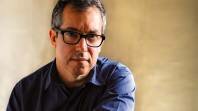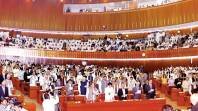In Khyber-Pakhtunkhwa, conditions have never really been amenable for art and culture to thrive. And at best ambiguous and at worst hostile policies of successive provincial governments have added to its woes. The wave of militancy and extremism since 9/11 further aggravated an already precarious situation in the KP in particular and FATA in general for literary and cultural activities.
Singers, musicians, dancers, actors and stage performers were indeed in the line of fire like never before. Some were gunned down, while others were forced to quit their profession; still more, relocated to other parts of the country and a good number headed abroad.
Peshawar’s Golden era
It was not always like this. Nearly a century ago, Peshawar was brimming with cultural activity. Commencing around the time of the First World War in 1910s, there were mobile stage performances which continued until 1926.
The first cinema theatre, which screened undivided India’s maiden silent film, Raja Harish Chander, was setup in the historic Qissa Khawani Bazaar. It was followed by the first ‘talking’ film, Alam Ara, in 1930. About more than 50 stage artists, singers, and stage performers from Peshawar thronged to what was then Bombay and scaled heights of glory in Bollywood. Dilip Kumar, Raj Kapoor and Madhu Bala all belonged to Peshawar.
Now or Never
For the entertainment-starved Peshawaris, it has become a case of ‘Now or Never’. When Bollywood celebrated its centenary in May last year, it was curtains for the once frequently-thronged cinema houses of Peshawar, after militants blatantly attacked two with hand-grenades, killing more than 20 movie buffs and seriously injuring scores. This forced the cinema owners to pull down shutters till foolproof security – a rare commodity in the city – was ensured.
“We have decided to close down our businesses till complete security is not ensured. About 10 cinema houses in the city shall observe closure. Even on normal days, only 30 to 50 used to turn up at each show. Owing to the current spate of terrorism, about 2000 employees affiliated with cinema business will lose jobs,” Sayyad Jamil, a senior cine-worker said.
Artists’ woes
Senior TV artist and president of artists organization Awaz Tariq Jamal said the PTI-led government in Khyber-Pakhtunkhwa was least bothered about art and artists’ plight adding that 95 per cent are living in rented abodes. Families of most artists and stage performers literally starve as the so-called KPK Culture Directorate has not arranged even a single show or cultural event in the city’s lone theatre Nishtar Hall since PTI came into power. This shows the apathy of the high-ups towards the artist community, Jamal regretted.
Only three production houses out of approximately one hundred have been left in the field. The royalty of a CD/telefilm was reduced from Rs300,000 only to Rs30,000 during the past few months. In FATA there is no CD market and no local singer can run an office in the tribal agency revealed Zarmat Khan Afridi earlier dealing in CD business in the Jamrud subdivision of Khyber agency.
Irreparable loss
During the last decade, Pashto music has lost artists and singers of high repute. Some have sought political asylum in foreign countries. Many are living miserable lives. Threats from militants have become routine. But in the post-9/11 scenario, a dwindling trend has been observed regarding art, heritage and music as militancy has affected every sphere of our life. Artists and singers in Khyber-Pakhtunkhwa and FATA are threatened, kidnapped and even forced to quit profession.
Banr in Swat and Dabgari in Peshawar were two main music streets. They were ‘learning nurseries’ where artists and singers used to transfer their art to the younger generation. These places were targeted by the militants, and Pashto traditional music suffered a serious setback. Hundreds of CD and DVD shops and music centres were blown up.
Sardar Yousafzai, a popular singer from Swat, and Gulzar Alam from Peshawar, were fired upon by militants, while Haroon Bacha, a young folk singer, took political asylum in the US following threats from extremists.
It wasn’t always so. A Pashtun is said to be born with tapa, rabab and mungay. These are the tools through which a Pathan gives vent to his hard life. A Pashtun versifies his suffering, miseries and romance in tapa – a couplet which consists two irregular lines – and he turns to rabab and mungay to throw away his day-long fatigue and sings out both his heart and head.
Revisiting past
Hujra and Jumaat represent a typical Pashtun’s religious, cultural and social life, but modern age disturbed this balance. Caught between religious obligations and social and cultural responsibilities, the Pashtuns’ attitude towards art, culture and music became hostile. The militants exploited this changing mood in their own favour.
Pashto music touched new heights when a recording company, His Master’s Voice, recorded the first Pashto song in the voice of a Persian-speaking lady, Guahar Jan Kalkatavi, in 1902 in London.
Later, around 250 recording companies came to India and had thriving businesses. A large number of Pashto singers emerged. Even some Hindus living in Pashto-speaking areas in the pre-Partition era began singing in Pashto. Radio Kabul was set up in 1925 while Peshawar Radio was launched in 1935. This gave great boost to traditional Pashto music.
The PTV too played a significant role in promoting local art and culture, including music. “Unless there is a drastic change in the mindset, the art of music will never flourish again,” Ustad Nazeer Gul, a senior music director, said.
Philistinism
“Threats or no threats our own people’s attitude towards music has been hostile. Young female singers such as Rabia Tabbasum, Aiman Udas and Ghazala Javed, as well as Anwar Gul (tabla player), and Shabana (dancer), died tragic deaths while noted Pashto folk singers Rasool Badshah and Zarshad Ali fell victim to fatal diseases, and a senior versatile folk singer Kamal Masood, from South Waziristan, moved to Rawalpindi following threats from militants where he succumbed to serious burn injuries at his rented home caused by a gas cylinder blast,” Akbar Hussain, 74, a Pashto folk singer said.
“The conditions for Pashto music are not favourable in Khyber-Pakhtunkhwa and FATA in many ways. My son was kidnapped three years ago by militants. They released him very fast, though. The feeling of being attacked from militants is still looming large. Musharraf Bangash, a young singer, too was kidnapped but was released after some time.”
Laiqzada Laiq, an author and Station Director at PBC Peshawar, who has recently written a book on the evolution of Pashto music, told Pique, “After digitalization, Pashto music has gained widespread popularity. Every day a new singer joins Pashto music. Music bands with new experimentation also are gaining ground. I don’t believe singers receive threats from militants now – most of them hype it in the local media just to gain the sympathy of foreign donors. Yes, quality has suffered but quantitatively Pashto music today has more artists, instrumentalists and singers than it had a few years ago.”
Resilience
An acclaimed singer Sardar Yousafzai, who survived an attempt on his life on December 15, 2008, underlined that singers and artists in the scenic valley are still facing insecurity and threats from militants: “Hardly a week goes by when I don’t receive threats from extremists. But we have to fight back. I am used to it now. We need to uphold our cultural identity at all costs.”
Senior Pashto folk singers Zarsanga, Akbar Hussain, Hidayatullah, Ustad Gulab Sher, Mashooq Sultana and Qamru Jan are in miserable condition, Yousafzai said.
“There is an undeclared ban on music. Artists and singers cannot perform live in FATA and settled areas fearing militant attacks,” says Janwali Khan, a music buff in Peshawar.
Lukewarm response
Requesting anonymity an official in the KP police department said, our hands are full providing security at sensitive installations, high officials and other citizens. “We had informed cinema owners of the impending threats of attacks asking them to improve their internal security.”
Nasser Yousaf Acting Secretary of Culture Khyber-Pakhtunkhwa responded saying a well-articulated cultural policy document is ready. The KP government is thinking of seek stakeholders’ final advice on its implementation which will address all issues related to art and artists. “If it gets implemented, I believe the artist community will surely benefit,” he assured.
The writer is a Peshawar based freelance journalist.






















